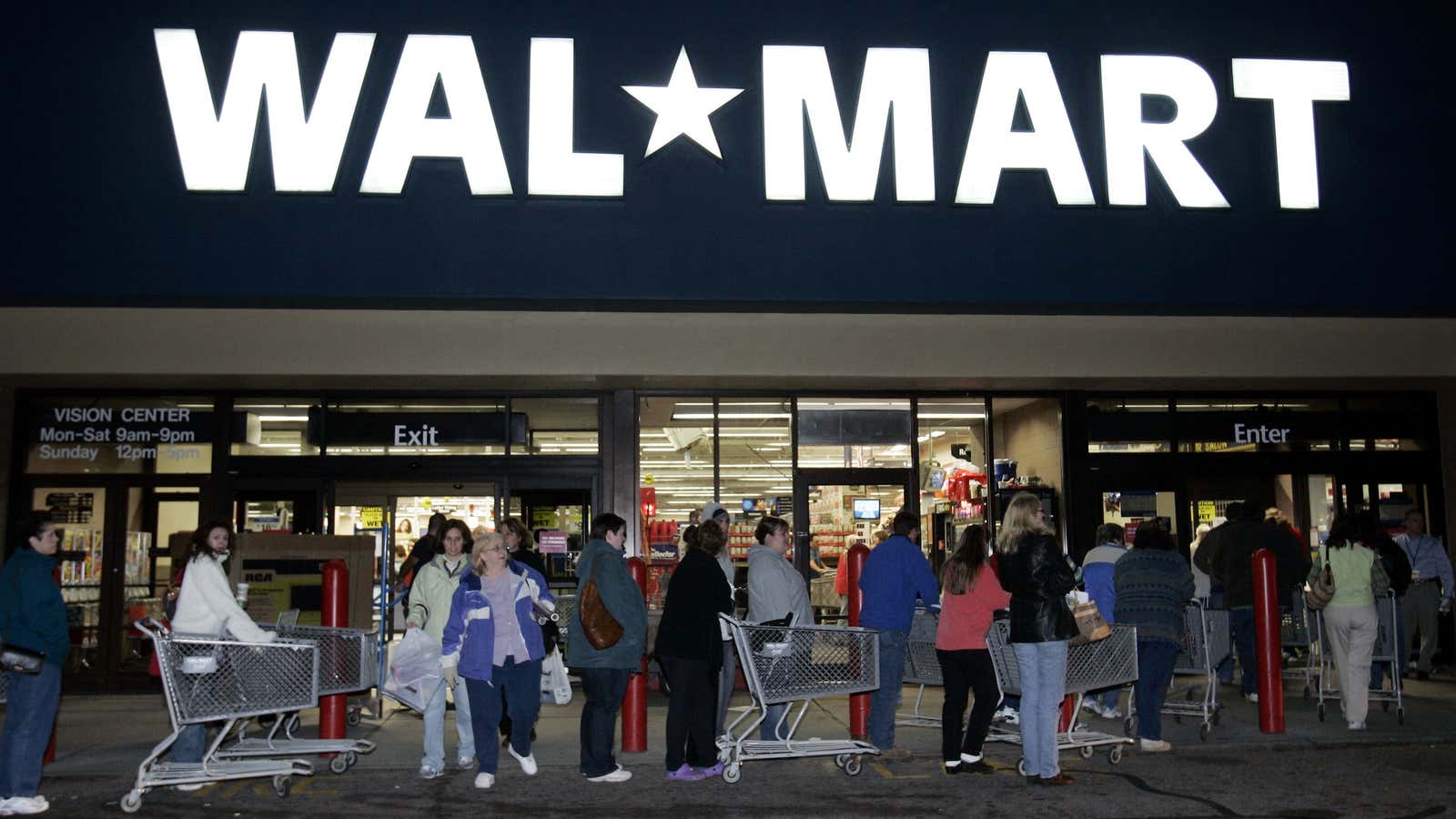At the nexus of culture and economics in the United States lies Black Friday: the day after Thanksgiving, which brings out masses of shoppers buying gifts for the holiday season. A retail giant like Wal-Mart is hoping to see its aisles filled with bargain hunting shoppers.
What the company doesn’t want to see on such a busy day? Employees demonstrating against low wages, volatile schedules and what they say are illegal firings and other punishments for complaining about working conditions or joining a workers’ association called OUR Wal-Mart. (The company denies any illegal retaliation.)
We’ve written before about the unprecedented challenges OUR Wal-Mart is presenting to the global retailer. The company has a long and successful history of fighting organized labor, and none of its stores in the United States is unionized. OUR Wal-Mart isn’t a union, though it is supported by the United Food and Commercial Workers, a major service employees union and frequent Wal-Mart antagonist. On Black Friday, the group is encouraging workers to walk out “in protest of Walmart’s continuing retaliation against Associates who speak out for better pay, affordable healthcare, improved working conditions, fair schedules, more hours, and most of all, respect.”
Wal-Mart says that this is union organizing by another name, and has brought the matter to court, asking the National Labor Relations Board for an injunction that would prevent the protests. The company argues that the demonstrations are illegal because US labor law limits union organizers to thirty days of protest, a ceiling Wal-mart says the UFCW has already exceeded. OUR Wal-Mart says that the limit does not apply because it is independent of its union parent, and is intended to serve workers in a country where most union organizing campaigns fail.
While the NLRB will seek to answer this question within 72 hours, a full investigation into the filing could take weeks. The legal action itself is a rare signal from Wal-Mart, which hasn’t acknowledged the recent protests as anything other than publicity efforts. Seeking federal intervention will put a spotlight on workers’ complaints; it is an admission that the association’s protests are too large to ignore.
But the move also paints a picture of the paradox facing Wal-Mart employees who would like to form a union: The only way they can legally picket is by showing that they are officially not a union.
